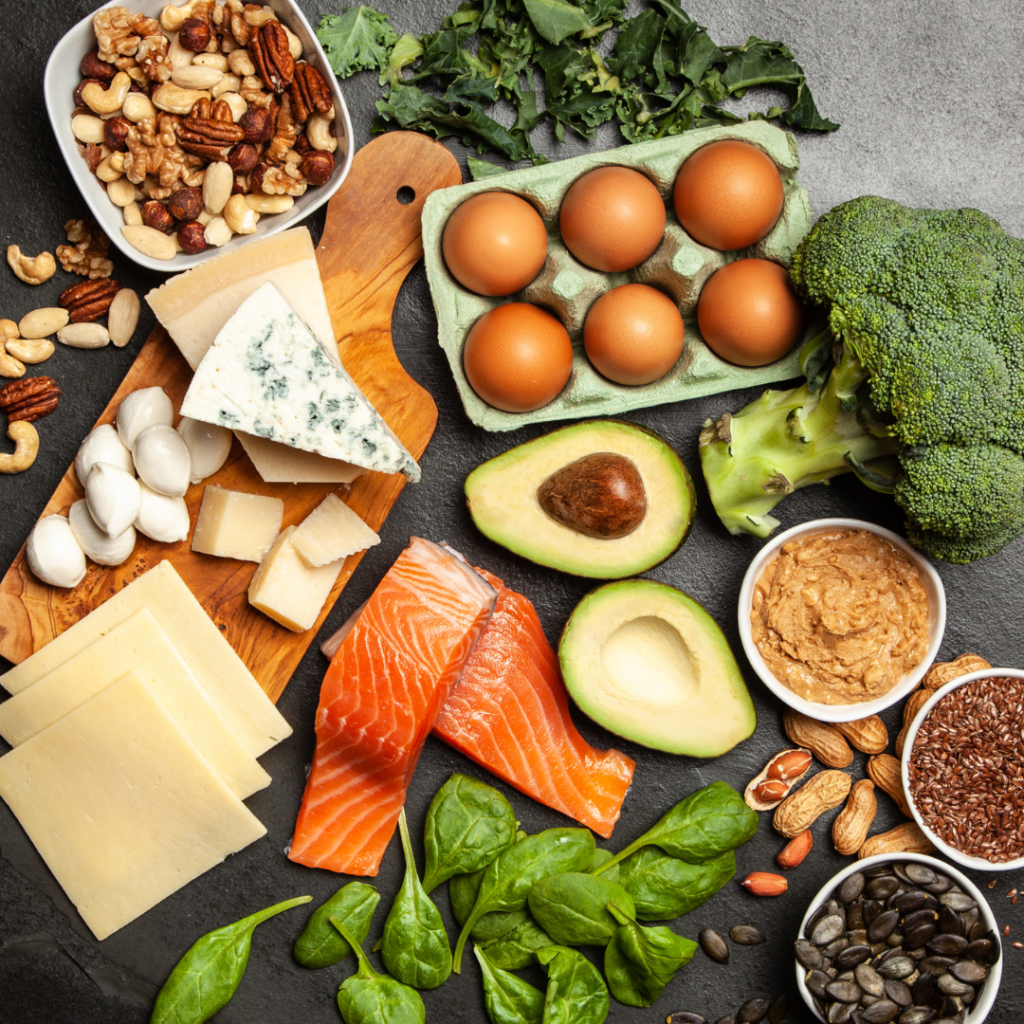By Claire Bacon, ACN, CNC
Men’s health is so important, and we don’t talk about it enough. Let’s bring some attention to supporting men’s testosterone naturally. Testosterone is the main driver of physical and emotional changes for men of all ages. With the right lifestyle choices and supplement support, improving testosterone can help your muscle building, stamina, libido, and more!
In consulting with our clients, when we hear that lab tests have revealed low testosterone levels, we know there are certain areas to support:
- Exposure to estrogens and xenoestrogens
- Sugar handling issues and metabolic syndrome
- Impaired detoxification
- Stress management
- Inactive lifestyle
- Hormonal imbalances
Men with chronically low testosterone can experience a number of issues including:
- Increased body fat
- Loss of muscle
- Poor sexual performance
- Osteoporosis
- Difficulty concentrating
- Memory loss
- Poor sleep
None of these are symptoms you should just accept as a normal part of aging. There are so many things you can do! When you know better, you do better…

Estrogens and Xenoestrogens
We want to make sure our male clients are not consuming phytoestrogens, which can have an estrogenic effect. Phytoestrogens include soy (edamame), soy milk, and even flaxseed. Xenoestrogens are chemicals that have an estrogenic-like effect in the body. It is common to drink water from plastic water bottles, which is a top way to inadvertently consume xenoestrogens like BPA. Even if you see a BPA-free label, the bottle likely contains BPS instead, which has the same effect. In addition, common pesticides on conventionally grown crops can act like estrogen in the body. We recommend choosing organic produce as much as possible, whenever you have the choice. And it’s especially worth it to choose organic wheat and oats, as these are commonly treated with glyphosate right before harvest.
In addition, men need to consider their personal care products. Typical fragranced shaving creams, lotions, and deodorants commonly contain chemical preservatives that can disrupt your hormones. It helps to keep an eye out for phthalate-free, fragrance-free, or non-toxic words on the label of all your products. Generally speaking, non-toxic products are harder to find, and you may need to order online. But taking this extra step can make a world of difference for your hormones! If you’re feeling especially crafty, you might like switching your standard cologne to a DIY essential oil blend. There are so many options, you don’t need to jeopardize your health just to smell good!
Sugar Handling Issues
Next, we need to look at sugar and simple carbohydrates coming in the diet. Testosterone levels are impacted almost immediately after consuming sugar, because of the rapid release of insulin within the body. Furthermore, sugar is the #1 most inflammatory food in our diet. Research has shown that a highly inflammatory diet is linked to low testosterone levels. When you’re inflamed, your insulin goes up, LDL cholesterol goes up, and triglycerides go up. All of these markers can be associated with low testosterone and accumulation of excess body fat. And we know that body fat also produces estrogen. So, tweaking your diet towards more Paleo, Whole 30, or Keto options and losing weight will be helpful. You can find some helpful recipes on our website, right here!

Impaired Detoxification
Did you know that estrogen and testosterone naturally oppose and balance each other? When testosterone is low, estrogen is likely high. This can happen for a variety of reasons, one being impaired detoxification. Your liver is responsible for neutralizing excess estrogen, before it is flushed out through the colon. But detoxification can be hampered through a variety of ways:
- Insufficient iron to build heme
- Presence of environmental toxins or heavy metals
- Insufficient sulfate and/or fiber intake
- Insufficient glutathione production in the liver
- Presence of genetic SNPs that slow certain enzymes, leading to homocysteine build-up.
However, with the right diet and whole food supplement support, you’ll be able to promote better detoxification. You have a lot of choices! Our favorite foods and supplements for detox include:
- Cruciferous vegetables (for Indole 3 Carbinol)
- Sprouted pumpkin seeds (for zinc)
- Dark leafy greens (for magnesium)
- Fresh, red beets (for betaine)
- Milk Thistle
- N-Acetyl-Cysteine

Stress Management
Acute and chronic stress have physiologic effects on the body. Lowering stress could help with low testosterone symptoms like low libido, low energy, and depression. The reason is because when you get stressed out, your cortisol hormone goes high, taking insulin high along with it. Both of these hormones are inversely related to your testosterone level. So unfortunately, if you’re letting your work and life circumstances get the better of you, this will undermine any possibility of having adequate testosterone.
Our favorite stress management techniques include:
- Playing classical music in the background
- Spending more time in nature
- Supplementing with Ashwagandha Forte or Ashwagandha Complex, and/or Korean Ginseng
- Taking a glandular-supportive supplement like Symplex M or Orchex

Sedentary Lifestyle
An inactive lifestyle can reduce testosterone levels. According to a study in the Indian Journal of Physiology and Pharmacology, researchers had 30 sedentary men participate in a 12-week exercise program. They found that the participants’ testosterone levels increased. Staying active is crucial to boosting your testosterone naturally. Specifically, resistance exercise is better than just doing cardio. (However, you really want to do both to stay lean!) If you find it hard to get to the gym, no worries! You can easily do body weight exercise in the comfort of your own home. Turn on the tunes to make it fun!
Some of our favorite exercises include:
- Planks (different positions)
- Pushups
- Sit ups
- Squats and split-squats
- Wall sits
- Burpees
- Scissor legs

Hormone Imbalances
Hormonal imbalances play a major role within our bodies. However, hormones are not a mystery. We can put these things on paper and objectively track your progress. We often recommend testing to get a clear idea where the imbalance is happening. Is it adrenal fatigue or low thyroid? Autoimmune condition, infection, or leaky gut? Or a genetic predisposition? When we know more data, we can guide you better through the process. You will understand which herbs and foods would be most helpful, whether they be aromatase inhibitors, 5-alpha reductase inhibitors, or simple nutrient dense foods, like those high in zinc.
Testing may include:
- Routine blood work
- Adrenal Stress Index Test (saliva)
- Expanded Male Hormone Panel (saliva)
- DUTCH Complete Test (urine)
- Comprehensive Stool Analysis
Be sure to contact Dr. Bob or Claire with any questions about the approach that is right for you!
Supportive Whole Food Supplements
We know supplements can get confusing, so watch Dr. Bacon and Chris Goodson from Standard Process, to help simplify them for you!
Conclusion
It’s so easy to be more aware of toxicity in your diet and lifestyle, and to make the appropriate adjustments. If you get stuck or confused, we are always here to help you get answers to your questions. Your hormone balance is within your reach! And it’s totally worth it to try!



